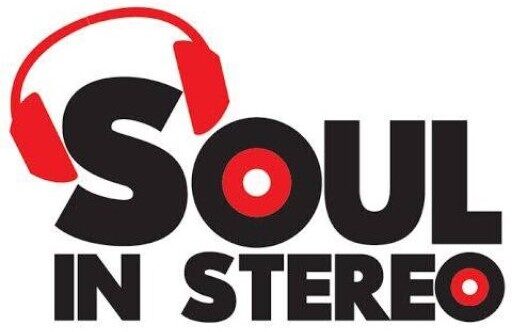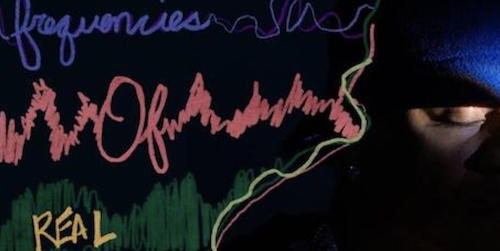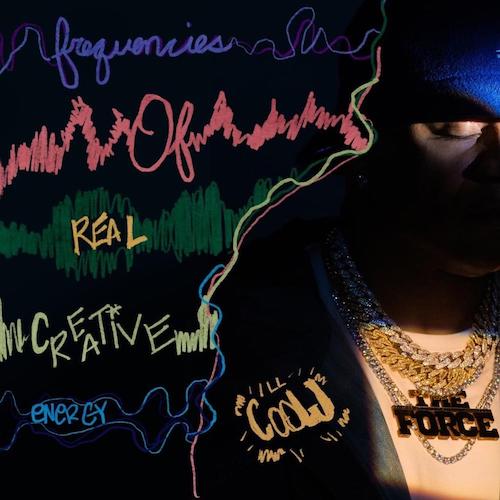LL Cool J
The Force (released September 6, 2024)
LL Cool J owes us nothing.
Without a doubt, James Todd Smith is one of hip-hop’s greatest architects. As a teenager, he was one of hip-hop’s most recognizable voices (his debut, in my opinion, is one of rap’s first five-star projects). He became the master of the so call “girl tracks,” able to shift from hardened lyricist to smooth loverboy with the flip of the switch, becoming the blueprint for scores of hardcore rappers who temporarily softened their edges for radio play. He survived a half-dozen battles and beefs that would have destroyed most rappers’ careers while seamlessly transitioning to both the small and big screen, taking hip-hop to Hollywood. I mean, this is the guy who is credited with bringing the GOAT term from the sports world to rap lexicon.
LL = living legend. A lot of y’all wouldn’t be reading this post right now if not for the foundation that LL laid.
But when I heard way back in the late 2010s that LL was planning a new album – his first after bowing out of the game after 2013’s Authentic, my first question was … why?
In my eyes, his legacy was already secured. Trying to return to a game to appeal to a younger fanbase that only knows him as an award show host with a lip-licking addiction seemed like a losing battle. The years of false starts and promises of an album that never materialized didn’t give me a lot of confidence.
But as news of The Force, LL’s 14 LP, began to solidify, I saw the vision. He enlisted fellow hip-hop architect Q-Tip to handle production. He taught his peers how to properly promote an upcoming project by being ever-present on blogs and interviews. And the singles he released? LL clearly wasn’t pandering to modern audiences – no autotune, no afrobeats, no trendy features from out-of-place artists.
This was unfiltered hip-hop.
That’s when I got it. He’s not here to win us over again – he spent four decades doing that. He’s back for the love of the game.
The Force isn’t a comeback album, it’s more of an affirmation album. Just like when we were infected by the magic of Nas’ king’s disease these past few years, LL seems more content exercising his lyrical muscles than harping about his legacy. Nas was having fun, and you can tell LL is doing the same.
And he’s doing it at the highest level.
“The Spirit of Cyrus” is the most jarring album opener of the year – in a good way. Right out of the gate, LL, with the help of Snoop Dogg, portrays a Black vigilante, whose guns are pointed directly at the corrupt cops that target Black communities. LL is brazen and ferocious: “blinded by my Black skin, now your head is see-through.” It’s a long way from “Accidental Racist.” That take-no-prisoners approach is felt throughout the project.
The album’s title track showcases an aggression I haven’t heard from Uncle L since 2000’s “Ill Bomb.” Tracks like “Passion” and “Runnit Back” are outright bar fests, especially the latter, where he coyly runs through some past accomplishments before resuming his mission to decimate the competition. Speaking of past glory, “Post Modern,” one of the best offerings, sees LL recapturing the bombastic energy of his “I’m Bad” heyday as he bellows over Q-Tip’s off-kilter production. It shouldn’t work, but it does wonderfully.
The Force isn’t just a 45-minute sprint. LL takes time to slow down for more poignant moments. “Black Code Suite” is a sweet celebration of Blackness: “mama when she’s dancing, uncle when he’s trippin/the spirit of Stevie Wonder when ‘Superstition’ was written.” Also, it wouldn’t be an LL album without an oversexed track on the setlist. Saweetie is the latest in a long line of female co-stars LL does it well with on “Proclivities.” Sure, we’ve heard LL share his sex fantasies for decades, but this type of track is a rarity in today’s landscape. Countless artists talk about sex, very few use this level of storytelling to get their point across. The two wind up sharing surprising chemistry.
On that note, one of the few complaints I have with The Force is that come of the collaborations don’t work as well as they should. “Saturday Night Special” seemed like magic in the making – Tip’s production is great and LL approached the track with a great concept. But Fat Joe and Rick Ross just do their usual Fat Joe and Rick Ross thing. Rawse abandons the track’s “advice from the OGs” theme entirely to ramble about yachts and Maybachs or whatever (props to L for trying to tie things back together immediately after). Also, I was extremely excited to hear that Nas would appear on “Praise Him,” highlighting two legends experiencing career renaissances together. But Esco’s contribution felt rushed and ends up forgettable.
Never fear, because Busta Rhymes more than made up for those missteps with “Huey in the Chair,” which plays out like a pair of rap titans oozing with blaxploitation energy. And while almost every Eminem verse is met with divisive banter these days, “Murdergram Deux” is a must-hear. I enjoyed Em’s contribution but LL’s breathless delivery will leave you speechless. I’ve been listening to this guy for almost 40 years, I can’t think of another time where his delivery was so fast and so intense.
LL has had his critics over the years – including me, and I consider myself a huge fan. He’s a huge part of my early rap fandom But The Force leaves no room for doubt. It may sound cliche but at 56 years old, LL is rapping better than ever. On “Basquiat Energy,” when he effortlessly spit: “you know we litty in the city, back on fire like we hit ’em with the stimmy, we be getting to the bag, hear me?” I had to pull the lil’ scroll button back at least three times to catch every syllable.
The breath control. The delivery. The intensity. He’s better than he’s ever been. You’d be crazy to doubt him.
Don’t call it a comeback, call it confirmation. The GOATs are immortal.
Best tracks: “Post Modern,” “Huey in the Chair,” “The Force”
4 stars out of 5





“this is the guy who is credited with bringing the GOAT term from the sports world to rap lexicon.”
Correction: LL Cool J invented the “GOAT” term back in 2000. It was used in hip hop before the sports world started using it.
No, the Ali family were the first to use the term. LL was the one who made it mainstream by bringing it to hip-hop. Then it got used in sports convos till the end of time. But it started with Ali.
I stayed up ’til midnight to download this album and played it from start to finish and didn’t feel an urge to skip anything. I then repeated Black Code Suite 5 times, Post Modern and the Force a few times and I can’t get enough of LL keeping up with Em and a speed very much like “Shut ’em down” from the Any Given Sunday soundtrack. Uncle L truly gets better with time. Good for Hip-Hop. Love your review…
‘I’ve been listening to this guy for almost 40 years, I can’t think of another time where his delivery was so fast and so intense’
LL Cool J – It gets no better…..